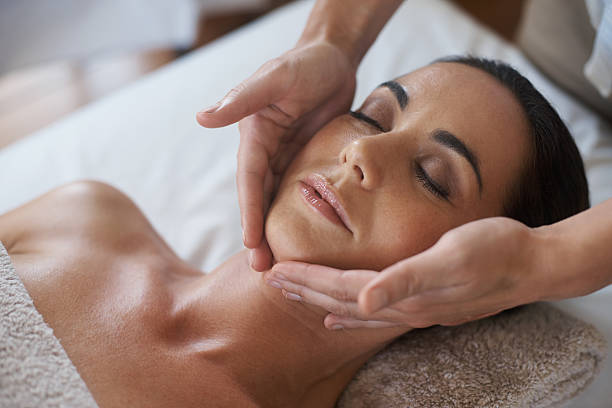The Comprehensive Guide to Maximising Productivity and Well-being on Business Trips

In today’s fast-paced business environment, professionals often find themselves traveling for work. Business trips are essential for fostering client relationships, closing deals, and expanding company horizons. However, frequent travel can take a toll on one’s physical and mental well-being. One effective way to combat the stress and fatigue associated with business travel is through professional massage therapy. This article explores how integrating massage into business trips can enhance productivity, well-being, and overall travel experience.
The Demands of Business Travel
Business travel, while exciting and full of potential opportunities, comes with its own set of challenges. Long flights, time zone changes, back-to-back meetings, and unfamiliar environments can lead to physical discomfort and mental exhaustion. Common issues faced by business travelers include:
- Jet Lag: Disruption of the body’s internal clock due to crossing time zones.
- Physical Strain: Prolonged sitting in planes or cars can lead to back and neck pain.
- Stress and Anxiety: High-stakes meetings and constant connectivity can cause significant stress.
- Sleep Disruptions: Unfamiliar settings and irregular schedules can affect sleep quality.
Benefits of Massage Therapy on Business Trips
Massage therapy offers a holistic approach to addressing the physical and mental strains of business travel. Here are some key benefits:
- Alleviation of Physical Discomfort
Massage therapy can relieve muscle tension and pain caused by prolonged sitting and poor posture during travel. Techniques such as deep tissue massage target deeper layers of muscles and connective tissues, providing relief from chronic aches and stiffness. This not only enhances physical comfort but also improves mobility and flexibility, essential for maintaining an active and productive schedule.
- Reduction of Stress and Anxiety
The pressures of business travel can lead to heightened stress levels. Massage therapy has been shown to reduce cortisol levels, the body’s primary stress hormone, while boosting the production of serotonin and dopamine, neurotransmitters that promote relaxation and well-being. A relaxing massage session can help calm the mind, reduce anxiety, and improve mood, allowing business travelers to approach their tasks with a clear and focused mind.
- Improved Sleep Quality
Travel-induced sleep disruptions can significantly impact productivity and overall health. Massage therapy promotes better sleep by enhancing relaxation and reducing stress. Techniques such as Swedish massage and aromatherapy massage use gentle, rhythmic strokes and calming essential oils to create a soothing experience that can lead to deeper and more restful sleep.
- Enhanced Circulation and Immune Function
Massage therapy improves blood circulation, which can be particularly beneficial after long flights that often cause blood to pool in the lower extremities. Enhanced circulation ensures that oxygen and nutrients are effectively delivered to tissues and organs, promoting faster recovery and overall vitality. Additionally, massage boosts lymphatic circulation, which helps in the removal of toxins and supports a healthy immune system, crucial for staying well during business trips.
Incorporating Massage into Business Travel
To fully reap the benefits of massage therapy during 출장마사지, it is essential to plan ahead and integrate it into the travel itinerary. Here are some practical tips:
- Research and Book in Advance
Many hotels and resorts offer in-house spa services, making it convenient for travellers to book a massage session without leaving the premises. It’s advisable to research and book these services in advance to ensure availability. For those staying in locations without in-house spa services, mobile massage therapists who offer in-room treatments can be a convenient alternative.
- Opt for Short, Effective Sessions
Business travelers often have tight schedules, making it challenging to dedicate a full hour or more for a massage. Opting for shorter, targeted sessions, such as a 30-minute neck and shoulder massage or a foot reflexology session, can provide significant relief and relaxation in a shorter amount of time.
- Utilize Airport and Layover Massages
Many major airports now offer massage services in their lounges and terminals. Taking advantage of these services during layovers or before a long flight can help reduce travel-related tension and prepare travelers for the journey ahead.
- Incorporate Self-Massage Techniques
In addition to professional massage services, learning basic self-massage techniques can be beneficial. Simple practices such as using a tennis ball to massage the back and shoulders or performing hand and foot massages can provide quick relief and relaxation, even in the absence of a professional therapist.
Case Study: The Impact of Massage on Business Performance
Consider the example of a multinational sales executive, Jane, who travels extensively for work. Jane began incorporating regular massage sessions into her travel routine, booking treatments at her hotel upon arrival and during layovers. Over time, she noticed significant improvements in her overall well-being. Her stress levels decreased, she experienced less muscle pain, and her sleep quality improved. Consequently, Jane reported higher energy levels and increased productivity, which positively impacted her performance in meetings and negotiations.
Conclusion
Incorporating massage therapy into business travel routines can significantly enhance the travel experience by addressing the physical and mental demands of constant movement. By alleviating physical discomfort, reducing stress, improving sleep quality, and boosting overall health, massage therapy empowers business travellers to maintain peak performance and well-being. As businesses continue to recognize the importance of employee wellness, integrating massage into corporate travel policies could become a standard practice, leading to healthier, happier, and more productive professionals on the go.
